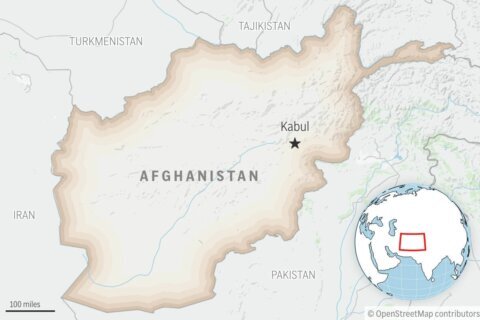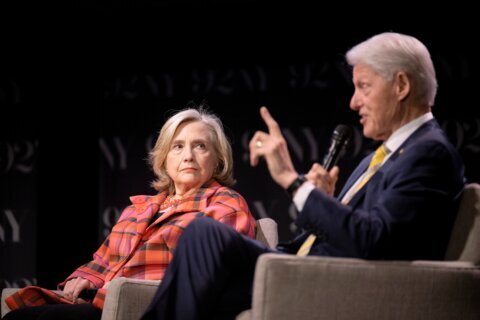Hood College freshmen will have an opportunity to pilot one new academic program while continuing two others as they start the 2012-13 school year.
The class of 2016 will be Hood’s first to participate in the first- year seminar program, which consists of 13 different seminar courses offered to only first-year students.
Freshmen also received iPads, extending Hood’s initiative to integrate the technology into the classroom, and the college will continue its first-year read program, which brings a well-known author to campus.
Hood Provost Kate Conway-Turner said first-year seminars are being offered in a variety of subjects ranging from computer science to history to psychology, but they are interdisciplinary to expose students to one subject from a variety of perspectives.
Seminars are designed to engage first-year students with a strong writing discipline and encourage them to think critically.
“We want to have students thinking in an analytical way,” she said.
Conway-Turner said Hood noticed a theme across the best liberal arts campuses was to offer a first-year seminar program.
Sue Carney, chairwoman of the first-year seminar committee, said the pilot is intended to help students improve their writing and become engaged on campus from day one.
Carney, an assistant professor of biology at Hood, said classes will be limited to 15 students, offering them a chance to get to know Hood’s faculty.
The seminar pilot is scheduled to last three years, with the committee looking for evidence of students becoming better writers and excelling in later courses.
“We’re going to use the data, and hopefully, it will tell us if these classes are making an impact,” she said.
The three-credit seminar program is not mandatory this year — it’s only strongly encouraged.
Although it is not mandatory, Conway-Turner said students have flocked to these classes with more than 200 of the 275 incoming freshmen signed up.
iPad initiative
For the second year in a row, every Hood freshman has received an iPad, and Conway-Turner said the college is expected to make a decision by the end of this semester on whether to continue the program.
iPads for the class of 2016 were funded through a gift to the college, she said.
An indication that the college is further preparing to move in the direction of more iPads is an opportunity for some upper classmen to receive iPads this year.
According to Conway-Turner, upper classmen in specific courses such as calculus will be loaned an iPad for the semester.
“They will be in a really good position because they’ll be taking more advanced courses to give me a good sense of how we can utilize iPads in upper division courses as well,” she said.
Hood plans to use faculty and student surveys to help make its decision about whether to continue giving iPads to students.
The main reason that Hood is exploring the iPad option is because technology is here to stay, and students are coming to the college from schools that already use iPads in class, Conway-Turner said.
“We really are wanting to make sure that we’re prepared and on the cutting edge to receive students using the kind of technology that they will become accustomed to,” she said.
Hood freshmen received their iPads during summer orientation and have already had the opportunity to put them to use.
The college is continuing its first-year read program that began last year. It requires all incoming freshmen to read a book selected by a committee of faculty and students before they arrive on campus.
Instead of picking up a physical copy of the book, students were able to download it to their iPads, according to Conway-Turner.
Students will be asked throughout the fall semester to participate in group and panel discussions about the book and watch movies that relate to the book’s themes before the author visits at the end of the semester.
This year’s selection is “Factory Girls” by journalist Leslie T. Chang. It describes everyday life for factory workers in China in the early 2000s.
Conway-Turner said Hood chose the book because of its timeliness with the phenomena and troubles of megafactories in China.
It also appeals to a range of students, whether they’re interested in history, psychology, social work or technology, she said.
The purpose of the program is to extend student perspectives outside of what they already know, and the reality of working in one of these megafactories is hard for students to imagine, Conway-Turner said.
“The book very much pushes our students to think about something that is very, very different than what they would normally have experience with,” she said.






